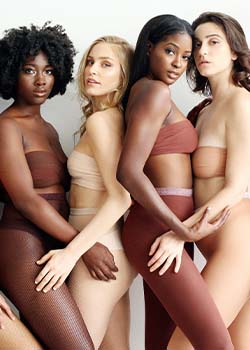
We’re very familiar with a certain image associated with pregnancy. A female presenting and identifying woman with a protruding belly, fostering a new life. The global maternity wear industry, that grosses approximately $18 billion USD a year, consists mostly of this imagery. Doting and smiling mothers experiencing the joy of birth giving. However, a recent court case in the United Kingdom shows that the imagery we’ve associated with birth giving for so long does not paint the full picture of the types of birth givers that need maternity wear, care, and support. Trans-fathers and non-binary individuals that give birth often face discrimination and misgendering because of a lack of knowledge within the medical community. By widening our understanding of the different types of gender identities that can give birth, we can end medical bias and discrimination against queer parents.
In 2017, Freddy McConnell was legally recognized as a male when he became pregnant via fertility treatments. After giving birth in 2018, McConnell took legal action when a registrar required him to sign as the child’s mother on the birth certificate. In response, Andrew McFarlane, the President of the High Court’s family division, instituted the first legal definition of motherhood in English common law, deciding that the term motherhood was tethered to becoming pregnant and giving birth. This verdict shows a distressing bias against queer parents and birth givers, showcasing a blatant disregard for their gender identity and pronoun preference. “I fear this decision has distressing implications for many kinds of families. I will seek to appeal…” McConnell tweeted in response to the final ruling.

(Freddy McConnell with ultrasound image of his child courtesy of BBC documentary, Seahorse)
How can healthcare providers serve their purpose of helping those in need, when they do not understand them? According to the 2015 U.S. Transgender Survey 33% of survey participants said that they experienced discrimination as a result of being transgender when visiting a health care provider, and 23% of participants said that they did not seek medical care when they needed it for fear of mistreatment. Positive strides such as President Joe Biden’s selection of Dr. Rachel Levine (a trans-woman) as Assistant Health Secretary provides hope that advocacy for the LGBTQIA+ community in the medical field will manifest into lasting change. However, Judge McFarlane’s 2019 ruling denying Freddy McConnell’s plea for his gender to be legally recognized on his child’s birth certificate, proves that societally and legislatively we have a long way to go.

(Promotional image of Freddy McConnell’s documentary film, named after the fish, that enlists males to carry and deliver eggs).
Trans-fathers are not the only people that must contend with bias against the queer community in the medical field. Non-binary birth givers are often misgendered and suffer dysphoria because of their health care practitioners. Zoe Williams, a non-binary birth giver said in an article for Rewire News Group, “Pregnancy—when your body undergoes significant and sometimes very rapid changes—can be especially difficult for trans and otherwise gender-nonconforming people… I’ve felt some degree of dysphoria during all three pregnancies.” While multitudes of queer birth giving discourse centers trans-men, non-binary birth givers also need representation and advocacy in the medical field.

(Trystan Reese (right) director of family formation for the Family Equality Council with partner Biff Chaplow and children, photo courtesy of Kevin Truong via NBC News)
Gender-affirming medical practices will not only support the mental health of the birth giver, it will also ensure a healthy environment for the baby. It is vital our societal discourse surrounding birth giving becomes inclusive, as the cultural erasure of queer birth giving curates bias in medical practices and a lack of care from medical practitioners. The global maternity wear industry could also use a makeover, as almost exclusively femme centric marketing excludes queer birth givers and further stigmatizes their existence in real life. Pregnancy should be a joyous time in anyone’s life, and by broadening our understanding of all of the types of birth givers that exist, we can create a healthier and happier society.

(Transgender couple Jay Thomas and Jamie Brewster with son Dorian, photo courtesy Nikki Boliaux / NBC News)
To donate to and learn more about LGBTQIA+ Healthcare Coalitions and Organizations visit: GLMA, The Fenway Institute, Family Equality, and the National Coalition for LBGT health.





